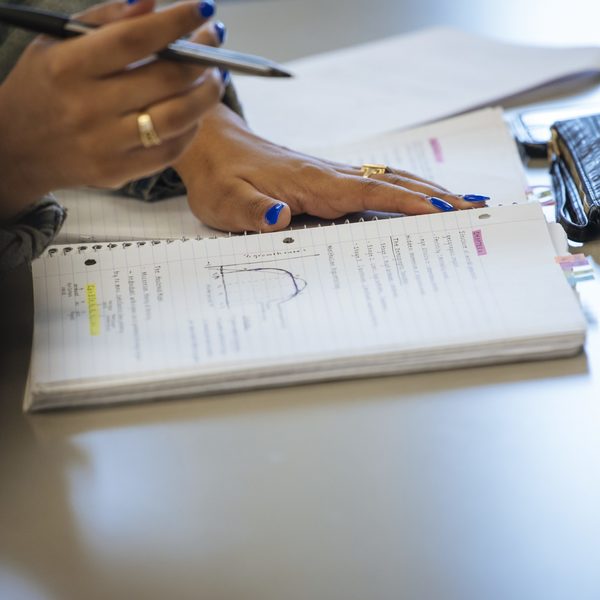This website uses cookies. Find out more in our Privacy Policy.
“We are stardust brought to life, then empowered by the universe to figure itself out—and we have only just begun.” ― Neil deGrasse Tyson
Physics and astronomy are disciplines that have given us the tools to stretch the human understanding of the universe, from the building blocks of matter to the structure and evolution of the most distant galaxies.
Physics and astronomy courses at Agnes Scott cover subjects as common as gravity and electricity, and as unusual as quantum mechanics, relativity, and dark matter. Astronomy courses emphasize both theory and observation, including the use of the Delafield Planetarium, individual telescopes, and other modern observing and image processing equipment in the Bradley Observatory. In addition, students regularly make observations using national astronomy facilities, like the Jansky Very Large Array, as well as northern and southern hemisphere 1-meter class telescopes through the college’s membership in the Southeastern Association for Research in Astronomy (SARA.)

Students acquire a general, flexible foundation for graduate study or for professional work in physics, astronomy, and other quantitative fields. You'll learn:
Intern and research at Arecibo Observatory, Centers for Disease Control and Prevention, Emory University, Georgia Institute of Technology, University of Alaska Center for Atmospheric Research, Jet Propulsion Laboratory, National Radio Astronomy Observatory and University of Central Florida Laser Center.
The departmental faculty, students, and Agnes Scott community members participate in a variety of activities during the year. Yearly events include a booth at the Atlanta Maker Faire, an Egg Drop, presenting at the Atlanta Science Expo, and launching model rockets. The department has movie nights in the observatory and dinners at faculty members' houses. Student volunteers aid with outreach to local schools and monthly Open House events at Bradley Observatory.
The 110,000-square-foot Mary Brown Bullock Science Center, with 65,000 square feet of teaching and lab space, is home to the physics, biology, chemistry and psychology departments. The building features extensive, modern instrumentation, faculty-student research laboratories, independent student-project laboratories and long-term observation areas. Full-time and part-time professors teach all physics and astronomy labs, and all students have the opportunity for hands-on research and experimentation. You’ll also have access to Agnes Scott’s uniquely-designed Bradley Observatory and its telescopes, as well as the Delafield Planetarium. Agnes Scott College is a member of the Southeastern Association for Research in Astronomy that operates 3 remote 1-meter telescopes in Arizona, Chile and the Canary Islands.
The problem-solving, computational, and critical thinking skills developed in physics and astronomy courses are valuable in a wide range of fields.
In this program, you’ll develop problem-solving and critical-thinking skills in the classroom and laboratory. With a degree in astrophysics, you will be prepared for professional work or graduate study in physics, astronomy or engineering. You will also gain practical skills operating remote telescopes.